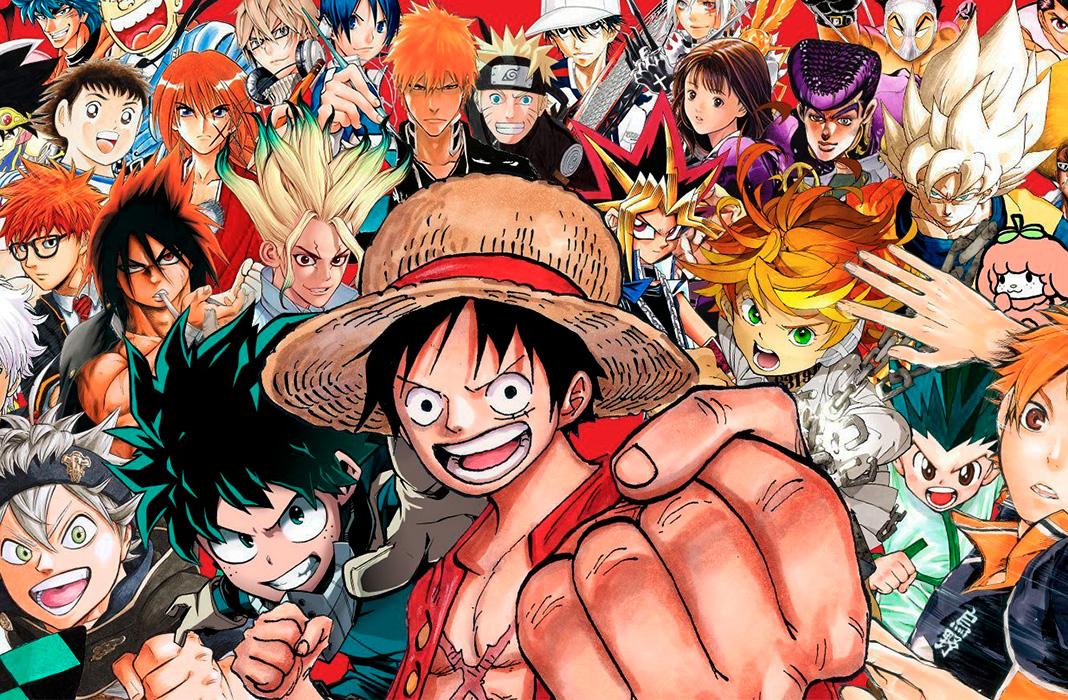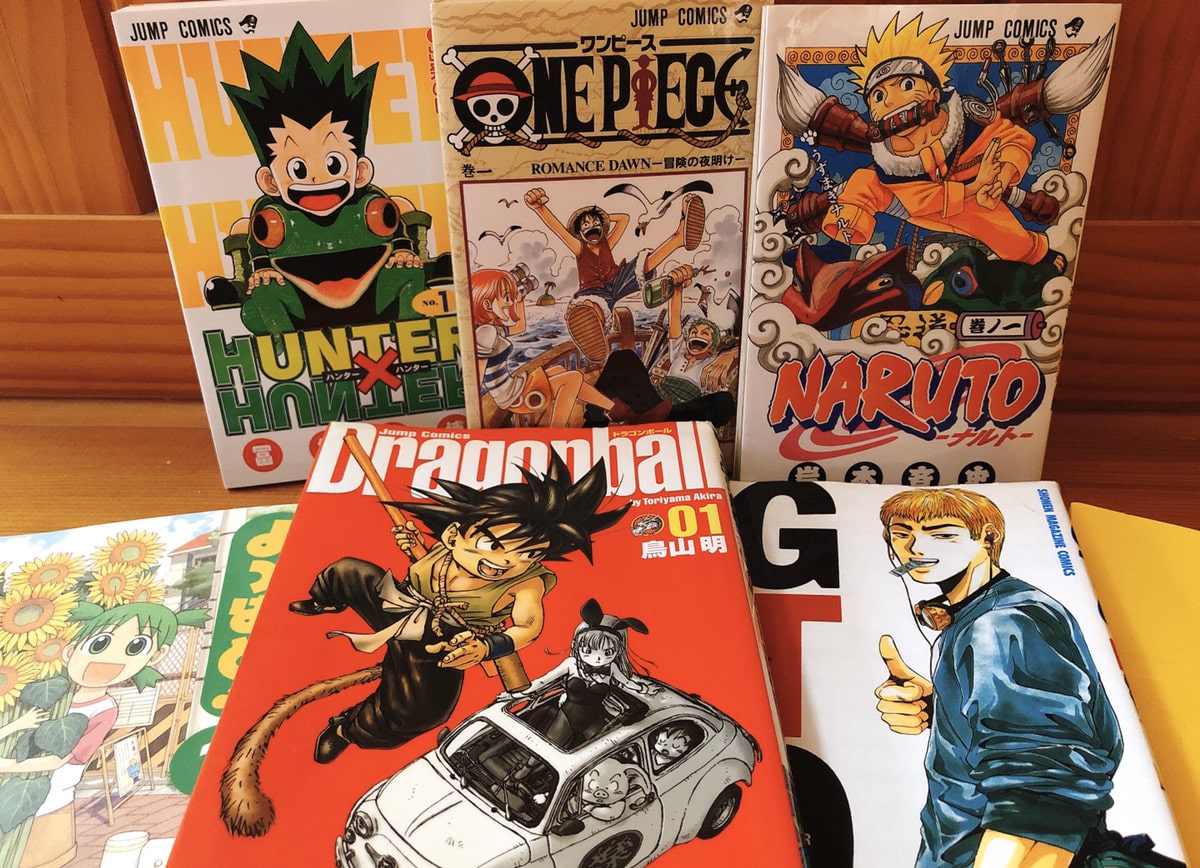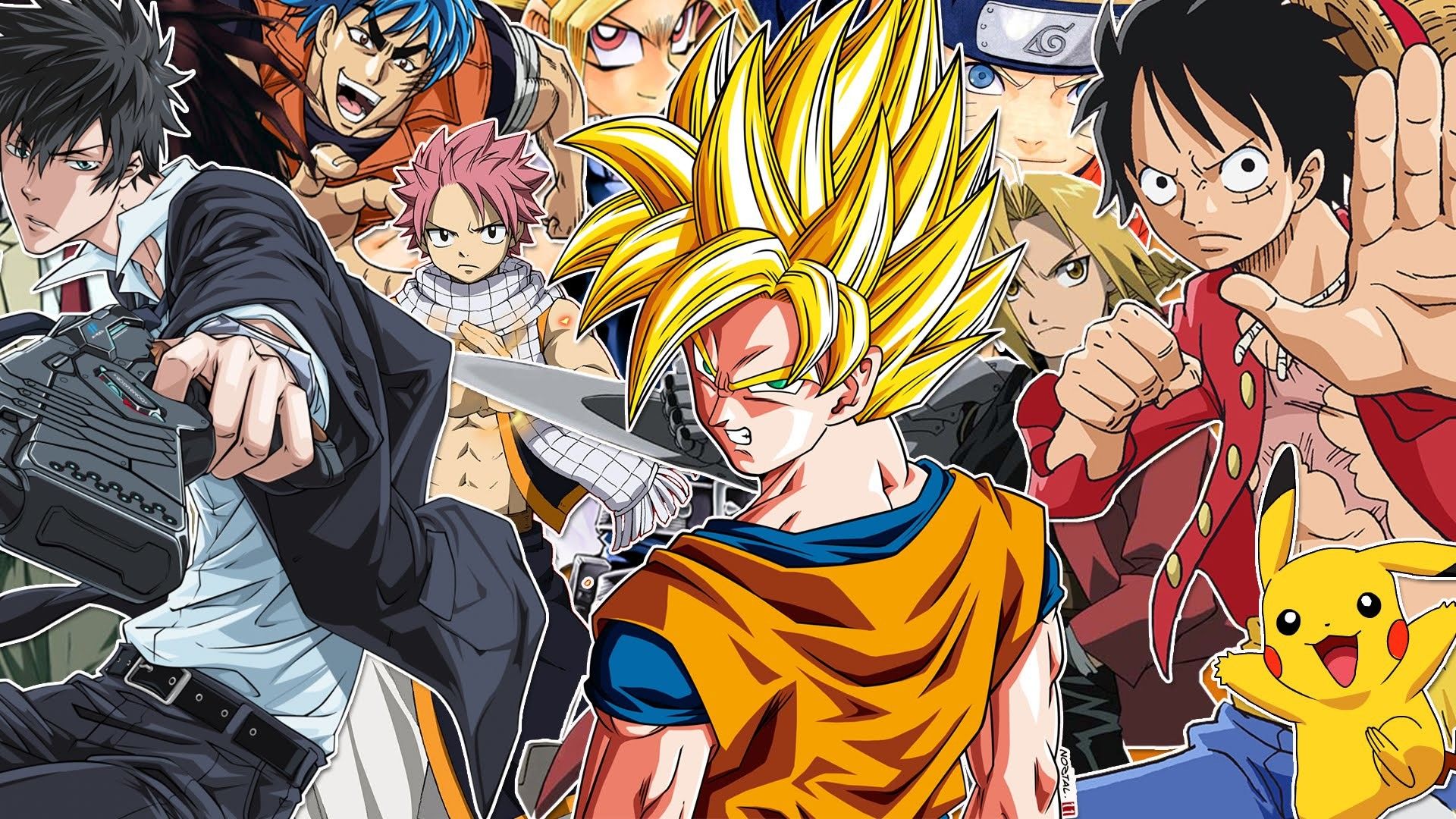Manga Pronunciation- Saying It Right Every Time
Ever find yourself talking about a cool story you've been reading, maybe something from a daily updated collection online, and then you pause, just a little, before saying "manga"? You're not alone, you know. Lots of people wonder how to say that word correctly.
It's a common thing, really, to stumble a bit over words from other languages. But for something as popular as these Japanese comics, which you can easily find to read for free, often with no ads and really good quality images, getting the name right can feel pretty good. It's a small detail, yet it helps you connect more with others who enjoy these stories.
So, whether you're chatting about a new series you just found by searching through thousands of titles by your favorite tags, or just mentioning a classic like Naruto or One Piece, saying "manga" the way it's meant to be said can make your conversations flow a bit more smoothly. It shows a certain appreciation, too, for the art form itself.
- Unraveling The Mystery Who Is Kathleen Turners Partner
- Taylor Swifts Musical Journey A Complete Guide To Her Albums In Order
- Transforming The Game The Overwatch Transformers Collab
- Unraveling The Mystery Who Is Neil Youngs Girlfriend
- Unraveling The Talented Cast Of Waterworld
Table of Contents
- Why Getting Manga Pronunciation Right Matters
- What's the Right Way to Say Manga?
- Common Slip-Ups in Manga Pronunciation
- How Does Correct Manga Pronunciation Help You Connect?
- How Can Listening Improve Your Manga Pronunciation?
- Practicing Your Manga Pronunciation for Saying It Right
- The Joy of Proper Manga Pronunciation
- Where Does This Manga Pronunciation Fit in Your Reading Habits?
Why Getting Manga Pronunciation Right Matters
Saying words correctly from other languages can make a big difference, you know. When you talk about something like "manga," which is so widely enjoyed and easily found on sites offering free reading, getting its name right shows a certain respect for its origins. It's like when you try to say someone's name properly; it just feels better for everyone involved. This small effort can really help your conversations about these amazing stories.
For many, reading these comics is a big part of their day, maybe checking a daily updated directory or finding new series by searching thousands of options by genre. So, when you bring up a favorite title, perhaps something like Bleach or Air Gear, you want to speak about the medium with a certain ease. It's a way to feel more at home in conversations with fellow fans, too. Nobody wants to feel like they're saying something a bit off.
- Discovering Dermot Kennedy The Height Of A Rising Star
- Buldak Recall Unpacking The Spicy Controversy
- Unraveling The Life Of Kristian Alfonsos Husband
- All You Need To Know About Emily Compagnos Age And More
- Unveiling The Legacy Of John John Florences Father
It helps with clear talk, too. If you say the word in a way that's quite different from how most people expect, there could be a moment of confusion. This isn't a huge deal, of course, but it can interrupt the flow of a chat. Proper pronunciation, you see, helps keep things smooth and natural, especially when you're excitedly telling someone about a cool new series you just started reading online, maybe one with high quality images and no ads.
Ultimately, it comes down to a feeling of shared interest. When you speak about something with care, it shows you value it. And for something as cherished as these stories, which are available to read online for free across many different places, showing that little bit of care with the word "manga" can make your discussions feel more genuine and connected. It’s a simple gesture that speaks volumes, so it is.
What's the Right Way to Say Manga?
So, let's get down to how you actually say this word. It's simpler than you might think, really. The word "manga" has two parts, or syllables, you could say. The first part is "man," like the beginning of the word "man." You make that sound with your lips together at the start, then open them for the "a" sound, which is sort of like the "a" in "father." It's an open, clear sound, you know.
Then comes the second part, which is "ga." This sound is like the "ga" in "garden." It's not a hard "g" like in "go," but a softer one, like the "g" in "garage" or "gentle." The "a" in "ga" is the same open sound as in the first syllable, that "ah" sound. So, when you put it together, it sounds like "mahn-gah." It's pretty straightforward once you break it down.
Many people tend to put a different sound for the "ga" part, or sometimes they make the "a" sounds too short. But if you remember that open "ah" sound for both "a"s, and that softer "g" for the second part, you'll be pretty close. It's not like you need to have a perfect accent from somewhere else, just a clear way of saying it that matches how most people who enjoy these stories say it. That's the main idea, anyway.
Think of it as two distinct, clear sounds. "Mahn" and "gah." Saying it slowly at first can really help. You can even try saying it to yourself a few times, just to get the feel of it. It's a bit like practicing anything new, you know, it gets easier with a little bit of repetition. Soon, it'll just roll off your tongue naturally, especially when you're talking about your favorite titles that you read online, perhaps from a site with hourly updates and no registration needed.
Common Slip-Ups in Manga Pronunciation
It's quite common for people to make a few little errors when saying "manga." One frequent slip-up is making the first "a" sound too short, like the "a" in "can" or "cat." So, it might sound like "mang-gah" instead of "mahn-gah." That short "a" can change the whole feel of the word, you see. It's a subtle thing, but it does make a difference in how it's heard.
Another common mistake involves the second "a" sound. Sometimes, people will say it like the "uh" sound in "sofa," making it "mang-uh." Or they might make the "g" sound too hard, almost like "man-guh." This can happen without even realizing it, especially if you've only ever seen the word written down and haven't heard it spoken much. It's just a little twist that can happen, that's all.
Some folks might also put the stress on the wrong part of the word. In "manga," the stress is pretty much even on both parts, or perhaps just slightly more on the first part, "mahn." But if you put a strong emphasis on the "ga" part, it can sound a bit unnatural. It's not a huge deal, but it's something to notice. These small things, you know, they add up to how a word sounds overall.
These little slips are totally normal, so. They happen because English speakers often try to fit foreign words into English sound patterns. But by being aware of these common ways people miss the mark, you can work on saying "manga" more closely to how it's truly intended. It's about adjusting your mouth and tongue a little bit, which gets easier with a bit of practice. This helps you talk about popular series across genres, all available for free, with more confidence.
How Does Correct Manga Pronunciation Help You Connect?
When you say "manga" in a way that sounds right, it really helps you connect with other people who love these stories. It's like speaking a secret handshake, in a way. When you're chatting with someone about a favorite series, maybe one you found by searching thousands of manga by your favorite tags, and you say the word correctly, it shows you're part of the group. It builds a little bridge between you and them, you know.
People tend to feel more at ease when everyone is speaking a shared language, even if it's just one word. If you're discussing the latest novelties you've read online, or a classic like One Piece, using the right pronunciation makes the conversation flow more smoothly. There's no awkward pause or moment of correction; it's just a clear, easy exchange of ideas. That makes for better talks, frankly.
It also shows a certain respect for the art form and its culture. These stories come from a specific place, and saying the word "manga" as it's meant to be said acknowledges that. It's a small nod to the creators and the fans who have been enjoying these works for a long time. This little gesture can make your discussions about your favorite online reads, perhaps those with high quality images and support for scanlation groups, feel more authentic.
Ultimately, it's about feeling comfortable and confident when you talk about something you care about. When you know you're saying "manga" properly, you can speak more freely, share your thoughts with more enthusiasm, and simply enjoy the conversation more. It takes away any little worry about sounding wrong, which, you know, can really free you up to just talk about the amazing stories themselves. It's a pretty good feeling, that.
How Can Listening Improve Your Manga Pronunciation?
One of the very best ways to get your "manga" pronunciation just right is to listen, listen, listen. You can hear the word spoken by native speakers or by people who have spent a lot of time with the language. There are many places to find these sounds, too. Think about podcasts where people discuss Japanese comics, or interviews with creators, or even videos about specific series like Naruto or Claymore.
When you listen, pay close attention to the sounds. Notice how the "ma" part is formed, and then how the "ga" part follows. Is the "a" sound long or short? Is the "g" sound hard or soft? Try to pick up on the rhythm and the natural flow of the word. It's like tuning your ear to a new song, you know. The more you hear it, the more familiar it becomes, and the easier it is to copy.
You can find many examples online. There are YouTube videos where people talk about their favorite manga series, or even language learning channels that break down Japanese words. Some of the places where you read your favorite stories online, like those offering high quality images and no ads, might also have companion content or community discussions where you can hear the word spoken. Just keep your ears open for it, so.
Don't just listen once, either. Listen many times. Repeat the word in your head as you hear it, or even out loud if you're in a place where you can. The more you expose yourself to the correct sound, the more natural it will feel for you to say it. It's a simple, yet very effective, way to get your pronunciation to where you want it to be. It helps you say "manga" with a certain ease, actually.
Practicing Your Manga Pronunciation for Saying It Right
Once you've listened a bit, the next step is to actually try saying it yourself. Practice is key, you know. Don't worry about getting it perfect right away. The goal is to get comfortable with the sounds. Start by saying "mahn-gah" slowly, breaking it into those two clear parts. Really focus on making the "a" sound open and clear, like the "a" in "father."
Try saying it a few times in a row. "Mahn-gah, mahn-gah, mahn-gah." You can even record yourself speaking it on your phone. Then, play it back and compare it to how you've heard others say it. This can be really helpful because sometimes what we think we're saying isn't quite what comes out. It's a bit like looking in a mirror when you're trying a new dance move, actually.
Don't be shy about practicing out loud, even if it's just to yourself. Say it when you're thinking about a story you just read, like a new chapter of Naruto or Bleach. Say it when you're browsing a daily updated directory of comics online. The more you incorporate it into your everyday thoughts and actions related to these stories, the more natural it will feel. It's about building a habit, in a way.
If you have friends who also enjoy these comics, practice with them! You can gently correct each other, or just say the word together. It makes the practice more fun and less like a chore. Remember, the aim is to feel confident and clear when you talk about this amazing art form, which you can read online for free, often with high quality images and no ads. A little practice goes a long way, so it does.
The Joy of Proper Manga Pronunciation
There's a real satisfaction that comes with saying a word correctly, especially one that connects you to a passion. When you can say "manga" with confidence and accuracy, it just feels good. It's a little win, you know, a small detail that adds to your overall enjoyment of the stories and the community around them. It helps you feel more connected to the wider world of fans.
Imagine you're chatting with someone about a new series you just found by searching thousands of manga by your favorite tags and genres. You mention how much you enjoy reading it online, perhaps from a licensed collection with updated freebies. When you say "manga" clearly and correctly, the conversation just flows. There's no hesitation, no question marks in the air. It's just smooth talk about shared interests, which is pretty nice.
This feeling of ease extends beyond just one word, too. When you take the time to learn how to say "manga" properly, it often encourages you to be more mindful of other words from these stories, like character names or specific terms. It opens up a little door to appreciating the language more, which in turn can deepen your connection to the stories themselves. It's a small step that leads to bigger appreciation, actually.
- Exploring Kate Chastains Girlfriend A Journey Of Love And Identity
- The Enigmatic Cast Of Harry Potter 5 A Deeper Look
- Did Mike Wolfe Die
- Unveiling The Life Of Bill Gates Adopted Daughter
- Bolly4 The Ultimate Destination For Bollywood Entertainment

Read the best manga legally and for free with MANGA Plus

25 Best Manga of All Time - Japan Web Magazine

Manga Wallpapers on WallpaperDog